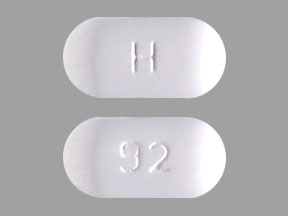
Actoplus Met Coupons & Savings Card – Discount Prices from $15.73
Brand for: Pioglitazone-metformin
My prescription
Edit
15-500MG, Pioglitazone-metformin (60 Tablets)
Select pharmacy

CVS
$24.77
COUPON PRICE
Walmart
$15.73
COUPON PRICE
Walgreens
$32.46
COUPON PRICE
Albertsons
$38.81
COUPON PRICEActoplus Met savings card
Show this card to your pharmacist
Walmart
$15.73
BIN
ID
PCN
GRP
019876
LH2D0A1791
CHIPPO
LHX
Powered by
More prescriptions for diabetes type 2
More prescriptions for diabetes type 2
Actoplus Met (Pioglitazone-metformin) dosage forms
Dosage Quantity Price from Per unit 15-500MG 60 Tablets $15.73 $0.26 15-500MG 30 Tablets $9.11 $0.30 15-500MG 90 Tablets $28.84 $0.32 15-500MG 180 Tablets $45.70 $0.25 15-500MG 270 Tablets $55.41 $0.20 15-850MG 30 Tablets $13.27 $0.44 15-850MG 60 Tablets $24.04 $0.40 15-850MG 90 Tablets $38.85 $0.43 15-850MG 180 Tablets $51.39 $0.28 15-850MG 270 Tablets $63.94 $0.24
| Dosage | Quantity | Price from | Per unit |
|---|---|---|---|
| 15-500MG | 60 Tablets | $15.73 | $0.26 |
| 15-500MG | 30 Tablets | $9.11 | $0.30 |
| 15-500MG | 90 Tablets | $28.84 | $0.32 |
| 15-500MG | 180 Tablets | $45.70 | $0.25 |
| 15-500MG | 270 Tablets | $55.41 | $0.20 |
| 15-850MG | 30 Tablets | $13.27 | $0.44 |
| 15-850MG | 60 Tablets | $24.04 | $0.40 |
| 15-850MG | 90 Tablets | $38.85 | $0.43 |
| 15-850MG | 180 Tablets | $51.39 | $0.28 |
| 15-850MG | 270 Tablets | $63.94 | $0.24 |
What is Actoplus Met used for?
Actoplus Met is used to help control blood sugar levels in individuals with type 2 diabetes. It combines two medications, pioglitazone and metformin, to improve insulin sensitivity and decrease glucose production in the liver.
How much does Actoplus met cost?
The cost of Actoplus Met can vary depending on factors such as the pharmacy, location, insurance coverage, and whether a generic version is available. Without insurance, the price can be quite high, but with insurance or discount programs, the cost may be significantly reduced. It is advisable to check with local pharmacies or online resources for the most accurate and up-to-date pricing information.
Does pioglitazone metformin cause weight gain?
Pioglitazone, a component of the combination medication pioglitazone/metformin, is known to potentially cause weight gain in some individuals. However, metformin, the other component, is generally associated with weight neutrality or even weight loss. The overall effect on weight can vary depending on the individual's response to the medication. It is important for patients to discuss any concerns about weight changes with their healthcare provider.
